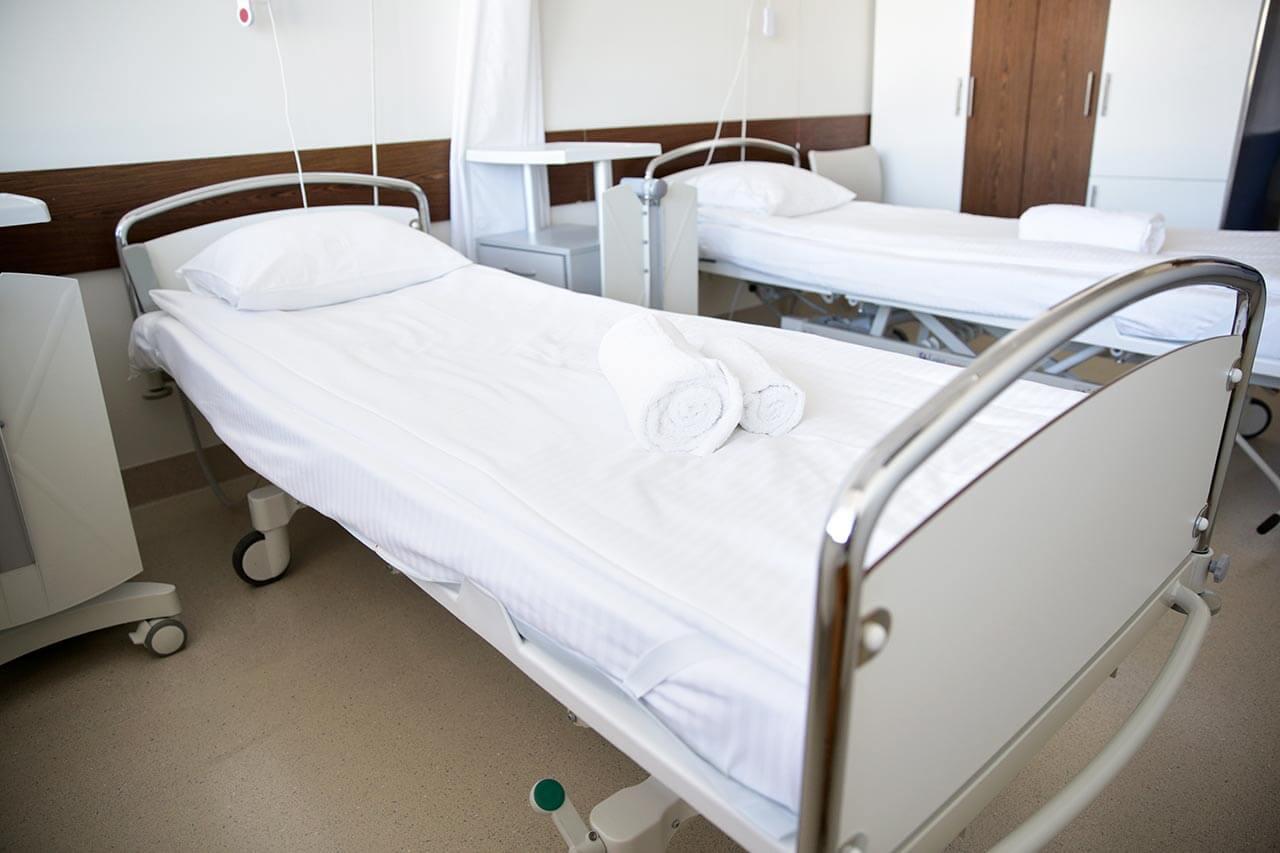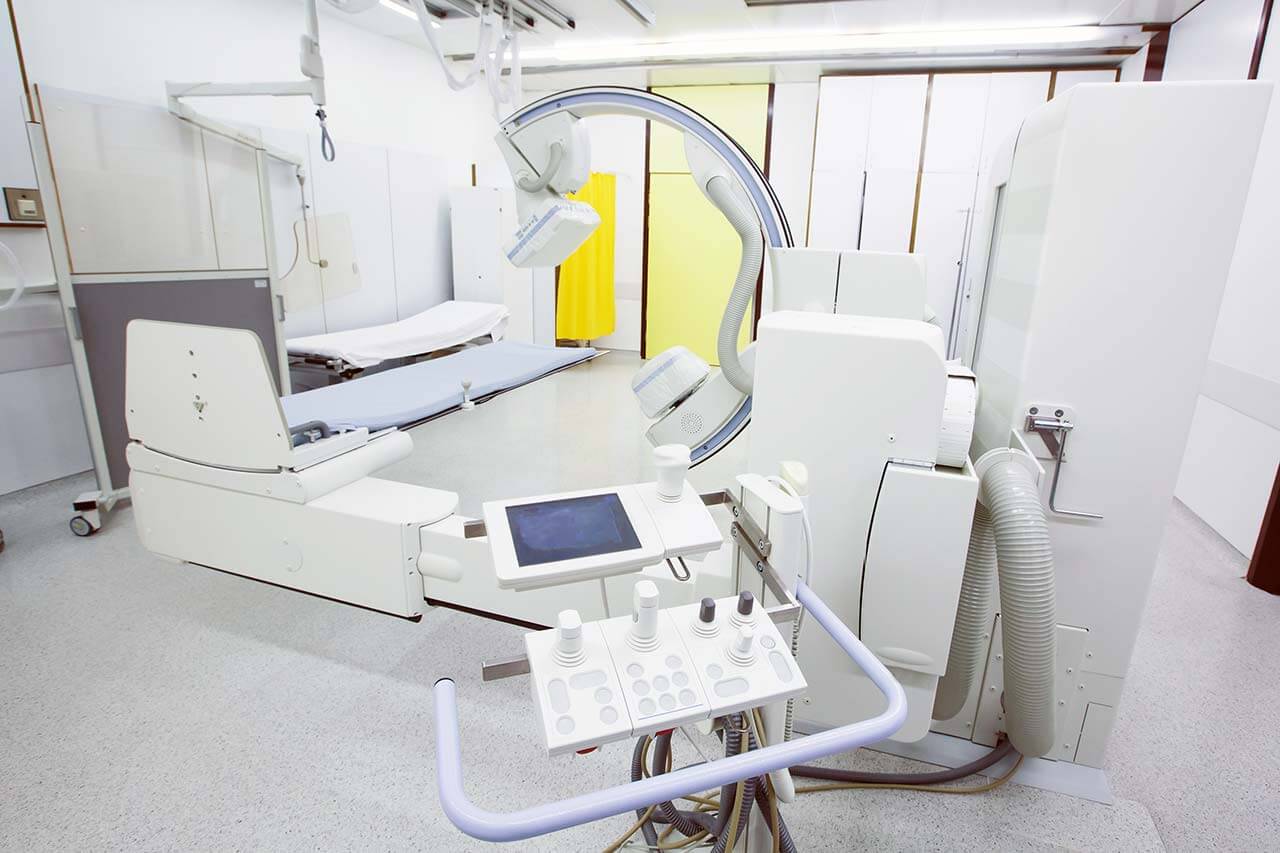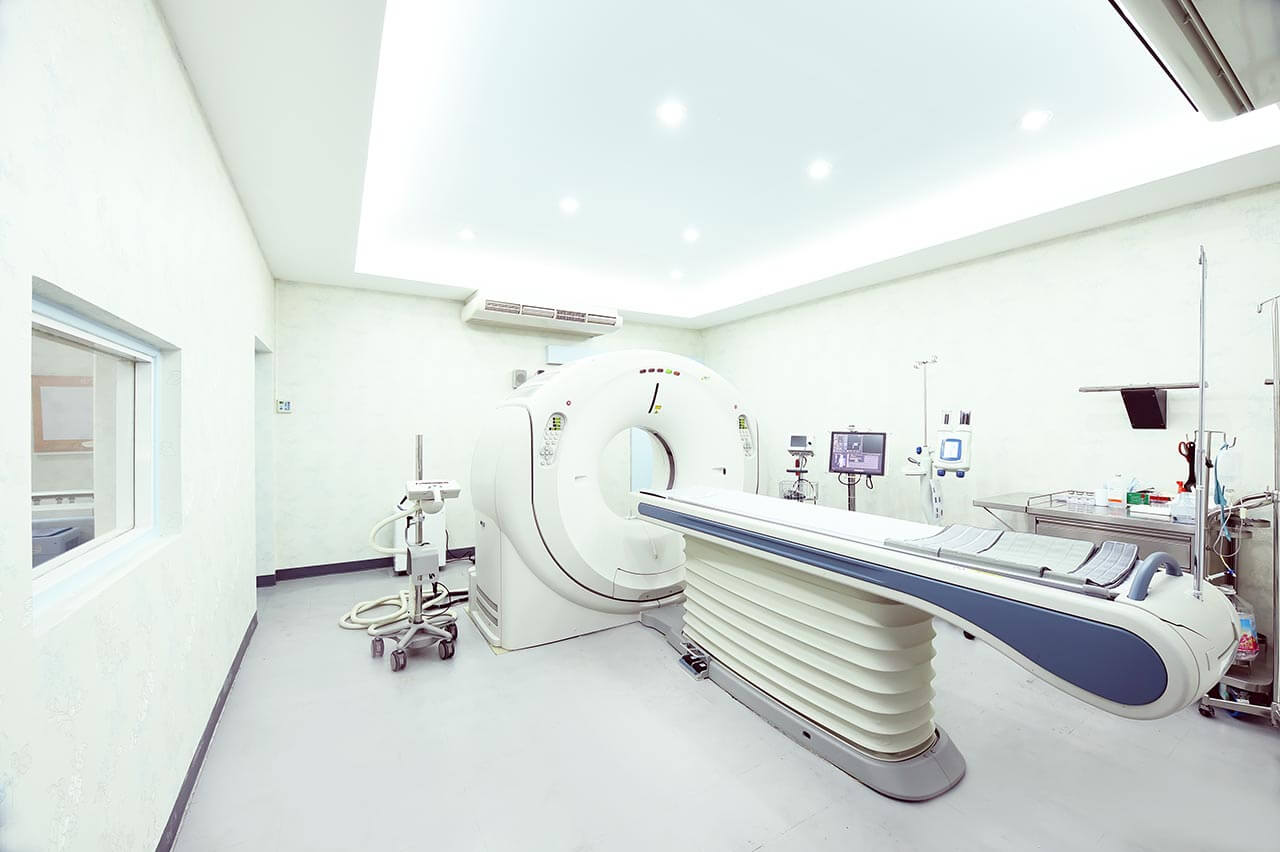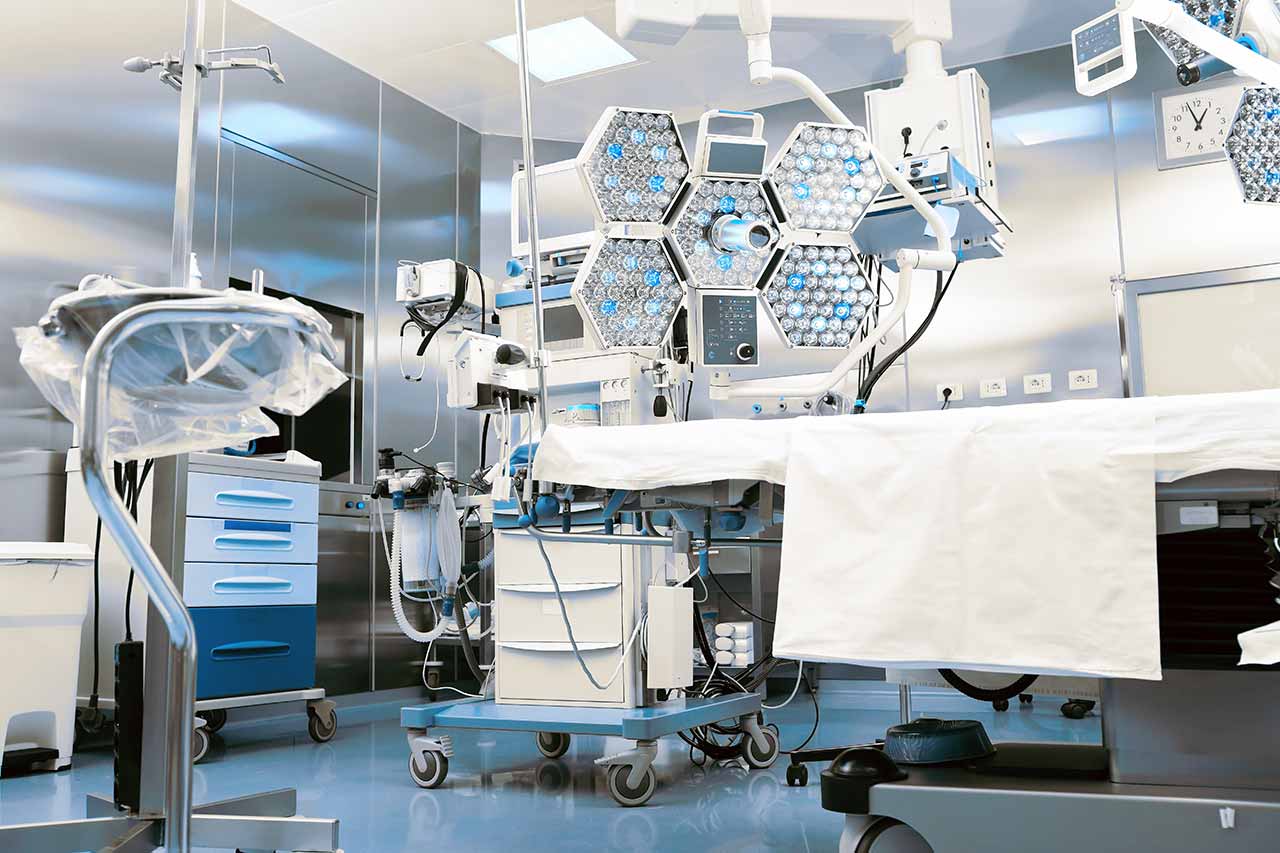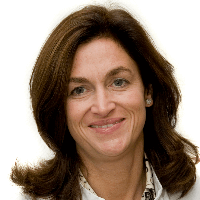
The program includes:
- Initial presentation in the clinic
- clinical history taking
- review of medical records
- physical examination
- laboratory tests:
- complete blood count
- general urine analysis
- biochemical blood test
- inflammation markers (CRP, ESR)
- blood coagulation analysis (aPTT, PT, INR)
- neurological examination
- functional X-ray of the head and neck
- electrophysiology study (if indicated clinically):
- ENMG (electroneuromyography)
- EEG (electroencephalography)
- SEPs (somatosensory evoked potentials)
- VEPs (visually evoked potentials)
- BAEP tests (brainstem auditory evoked potentials)
- CT/MRI scan of the head and neck
(if indicated clinically, additional cost is 650/1200€) - nursing services
- consultation of related specialists
- treatment by chief physician and all leading experts
- explanation of individual treatment plan
Required documents
- Medical records
Service
You may also book:
 BookingHealth Price from:
BookingHealth Price from:
About the department
The Department of Neonatology, Pediatric Intensive Care and Neuropediatrics at the University Hospital Essen offers the full range of services in these medical fields. The department is headed by Prof. Dr. med. Ursula Felderhoff-Mueser, who, according to the Focus magazine, ranks among the top German doctors in the field of neonatology!
The department became one of the first medical facilities certified by the Medical Association of North Rhine-Westphalia as a Level I Perinatal Center. It provides first-class medical care for premature babies, newborns and children with congenital or neonatal diseases. The specialists in the field of pediatric intensive care guarantee quality care for seriously ill children, while the experienced neuropediatricians take care of the health of the nervous system in children of all age groups (from newborns to 18 years). Of particular interest in this focus is myasthenia therapy. The department is certified as a specialized center for the treatment of this pathology. A competent team of pediatric neurologists, psychologists, physiotherapists, nutritionists and neurophysiologists works with young patients to provide comprehensive treatment of neuropediatric diseases.
The department is equipped with state-of-the-art technologies for treating children and monitoring the vital functions of the child’s body in the intensive care unit. Also, special attention should be given to the design of the pediatric department. All rooms and wards are made in warm, pleasant colors, there are special game rooms, and if desired, one of the parents may stay in the patient room with the child.
The department’s clinical focuses include:
- Neonatology
- Care for very small premature babies
- Care for twins
- Treatment of congenital malformations and diseases
- Treatment of brain diseases in newborns
- Pediatric intensive care
- Treatment of severe infections, especially in children with oncological and immunosuppressive pathologies
- Care for children after complex neurosurgical, orthopedic, urological, otolaryngological and ophthalmic operations
- Treatment of acute and chronic liver failure and conditions after liver transplantation
- Treatment of acute kidney failure
- Treatment of neuromuscular pathologies
- Treatment of acute respiratory failure
- Non-invasive lung ventilation
- Treatment of serious diseases developing immediately after birth, for example, metabolic disorders
- Neuropediatrics
- Treatment of neuromuscular diseases (certification of the German Society for Muscular Dystrophy Association)
- Myasthenia gravis treatment (certification of the German Myasthenia Association)
- Treatment of neuroinflammatory processes
- Epilepsy treatment
- Treatment of neurodegenerative and neurometabolic disorders, in particular the treatment of glucose transporter-1 deficiency and ketogenic diet
- Treatment of developmental disorders
- Care for premature babies
- Treatment of newborns with special neurological problems
- Treatment of tuberous sclerosis (within the framework of the certified center)
- Treatment as part of the numerous clinical trials
- Electroencephalography
- Neurophysiological studies (for example, studies of the peripheral nerve motor and sensory functions, registration of somatosensory and visually acoustically induced potentials
- Diagnostics of neuromuscular diseases within the specialized laboratory
- Other medical services
Curriculum vitae
Clinical and Scientific Career
- 01.1992 - 04.1992 Intern, Department of Internal Medicine II, University Hospital Mannheim.
- 05.1992 - 08.1993 Assistant Physician, Department of Pediatric Neurology, training in the field of electroencephalography and training for the title of a Medical Specialist, University Hospital Heidelberg.
- 09.1993 - 08.1997 Training for the title of a Medical Specialist, Department of Neuropediatrics, Augusta Victoria Academic Clinic at the Free University of Berlin.
- 09.1997 - 09.1998 Research Internship, Hammersmith Clinic, Imperial College, Weston Neurology Laboratory for Newborns, London, England.
- 10.1998 - 08.2000 Subspecialization in the Neonatology, Department of Neonatology, Charité, Campus Virchow, Humboldt University of Berlin.
- 03.2000 Board certification in Pediatrics.
- 09.2000 - 10.2008 Senior Physician, Department of Neonatology, Charité, Campus Virchow.
- 03.12.2003 Habilitation.
- 11.2005 Specialization in Neonatology.
- 20.05.2008 Appointment as an Extraordinary Professor at the Charite.
- Since 01.11.2008 Head of the Department of Neonatology, Pediatric Intensive Care and Neuropediatrics at the University Hospital Essen.
Research Activities and their Focuses
- 1993 Doctoral dissertation: "Laser surgery of the fallopian tubes", Department of Gynecology, University Hospital Heidelberg.
- 1997 - 1998 Postdoctoral Program, Hammersmith Clinic, Imperial College, Weston Neurology Laboratory for Newborns, London, England.
- Since 1999 Department of Neonatology, Charité, Berlin: "Study of the mechanisms of brain damage in preterm and newborns".
- 2003 Habilitation: "The importance of apoptotic signal transmission mechanisms
- in clinical and experimental models of immature brain damage".
Awards and Appointments
- 09.1999 Young Investigators Award of the European Society for Pediatric Research.
- 01.2006 Invitation to the position of Professor in Experimental Neonatology at the University of Innsbruck.
- 05.2006 Research Prize of the German Society for Neonatology and Pediatric Intensive Care (GNPI).
- 08.2006 Invitation to the position of W2 Professor of Neonatology at the University of Aachen.
- 02.2008 Appointment to the position of W3 Professor in the Department of Neonatology, Pediatric Intensive Care and Neuropediatrics at the University Hospital Essen.
Membership in Professional Societies
- Since 1999 European Society for Pediatric Research, Brain Section (ESPR).
- Since 2000 Society of Neurosciences.
- Since 2002 European Neonatal Brain Club (ENBC).
- Since 2008 German Association for Neonatology and Pediatric Intensive Care (GNPI).
Photo of the doctor: (c) Universitätsklinikum Essen
About hospital
According to the authoritative Focus magazine the University Hospital Essen ranks among the top German hospitals!
With 27 specialized departments and 24 institutes, the hospital in Germany is a maximum care medical facility. The hospital has 1,300 beds for inpatient treatment. A highly qualified medical team of more than 6,000 employees takes care of the health of patients. All the specialists give preference to an interdisciplinary medical care, which guarantees a comprehensive treatment taking into account the smallest aspects of a particular pathology. The hospital annually diagnoses and treats more than 50,000 inpatients and about 195,000 outpatients, which testifies to the prestige of the medical institution and the highest quality of treatment in Germany.
The hospital presents all the modern medical fields. Nevertheless, special attention should be given to the following major fields of specialization as oncology, transplantology and cardiology, as well as research activities in the field of immunology, infectology and translational examinations of pathologies of the nervous system and behavioral disorders.
Established on the basis of the standard American model of Comprehensive Cancer Centers, the West German Cancer Center (WTZ) in Essen was recognized as the best medical facility of this kind in Germany in 2009. Nowadays, the center holds leading positions both on the national and international medical markets. The basis of its successful clinical practice is the use of very latest treatment methods and an interdisciplinary approach to each clinical case. The West German Organ Transplant Centre (WZO) is also recognized as one of the best in the country and one of the few in Germany, which specializes in the transplantation of all vital organs, such as kidney, liver, pancreas, heart and lungs. Special attention is paid to kidney and liver transplantation.
The hospital in Germany is proud of its high-tech medical equipment, experienced and competent staff, productive research activities, which allow to guarantee the accurate diagnostics and effective treatment, including rare and very complex clinical cases for every patient. Consequently, the hospital is considered a perfect embodiment of high-quality treatment in Germany.
Photo: (c) depositphotos
Accommodation in hospital
Patients rooms
The patients of the University Hospital Essen live in comfortable rooms designed in bright colors. The standard room furnishing includes an automatically adjustable bed, a bedside table, a personal wardrobe, a personal call button with a built-in light panel, a telephone, a TV and a radio. The Internet access is available at an additional cost.
Meals and Menus
The patients of the hospital are offered a daily choice of three menus. The patients are also offered alternative types of menus, if their religion requires the exclusion of certain foods. If you follow a certain diet or suffer from food intolerance, you will be provided with a menu of your choice by discussing it with your attending physician in advance. The hospital also houses a bistro and a cafe, where one can have a tasty snack, enjoy hot and cold drinks.
Further details
Standard rooms include:
Accompanying person
There are a few types of hotels for the accompanying persons, who want to stay near the hospital. The hotel of the Essen University Hospital offers apartments on the first floor of the nursing high-rise building. The DRK nursing also offers single and double rooms.
The hotel in Grugapark is available for the parents, whose children stay in the hospital. The parents of children with cancer can also stay here. Moreover, The Department of Pediatrics offers its rooms for parents.
